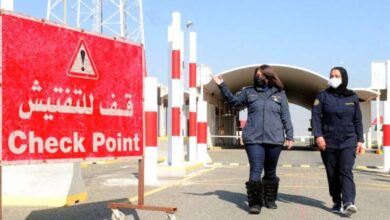Quality legislation must for Kuwait to benefit from reforms: Al-Mutairi

The head of the Kuwaiti Transparency Society, Majed Al-Mutairi, said, “Although Kuwait is now living a period of unprecedented government-parliamentary cooperation, despite our support for this government cooperation, and our belief that this reform process is a national priority.” He stressed on the need to pay attention to the quality of legislation to make reforms of real benefit.
He said this as the world will celebrate the International Anti-Corruption Day, which falls on December 9 of each year, and the 20th anniversary of the issuance of the United Nations Convention against Corruption, under the slogan ‘Towards a United World Against Corruption’.
He disclosed the Kuwait Transparency Society’s has exerted tremendous efforts to improve Kuwait’s ranking in international indicators. “Over the past two years,” he added, “the Society has achieved much that will contribute radically to improve the ranking of the State of Kuwait in international indicators, and work to evaluate Kuwait’s ranking in the global Corruption Perceptions Index (CPI).
He added, the society also obtained the position of General Coordinator for the non-governmental group in the Arab Network for Promoting Integrity and Anti-Corruption (ACINET), which is a tribute to the role of Kuwaiti civil society organizations in general, and to the Kuwait Transparency Society in particular for its influential and important regional role.”
He went on to say, “The society also contributed to transferring its local experiences and expertise from evaluating national performance, through its participation in the meetings of the Financial Action Task Force (FATF) to evaluate Kuwait regarding combating money laundering and terrorist financing for the year 2023, as it is among the civil regulatory bodies.”
Al-Mutairi identified the following requirements to improve transparency and combating corruption in Kuwait:
- The Public Authority for Anti-Corruption performing its duties as set by the law of its establishment.
- Accelerating the implementation of the remainder of the national anti-corruption strategy (which is stalled and ineffective) and preparing for the new strategy 2024-2029 (sector strategy) instead of the comprehensive strategy that does not fit with the Kuwaiti reality.
- Approval of the law on appointment to senior positions.
- Accelerating the formation of the High Electoral Commission, and approving the proposal for a law on transparency and integrity of the National Assembly.
- Allow civil society to work freely and not restrict it, and involve it in the “New Kuwait 2035” vision.
- Obliging government agencies to pay attention to providing data on which the results of international indicators are based.
- Applying principles of governance in the government sector and the risk management and internal audit system.
- Transparency of the public procurement system, and commitment to implementing the Public Tenders Law.
- Approval of the Penal Code, criminalizing foreign public employees and bribery in the private sector.
- Enforcing the law on everyone, and issuing verdicts in corruption cases without any delay, infringement of public funds, and accountability.
Al-Mutairi said, “The government and Parliament must pay special attention to the Public Authority for Anti-Corruption, as it is the official national body for promoting transparency and combating corruption.
The philosophy of establishing the authority is that it does not compete with the investigative frameworks under the umbrella of the judiciary, but rather provides technical assistance and specialized expertise to support the litigation process, specifically in cases of infringement of public funds, or harm to the public interest (corruption of official frameworks).”











